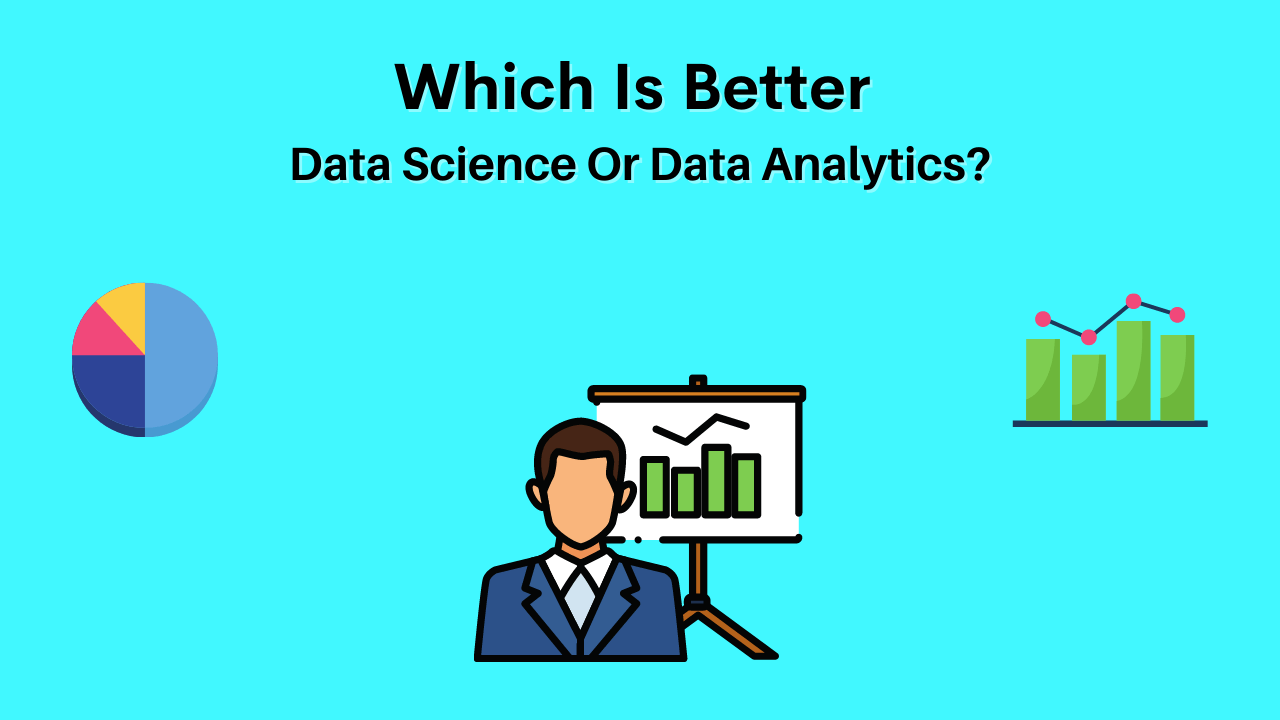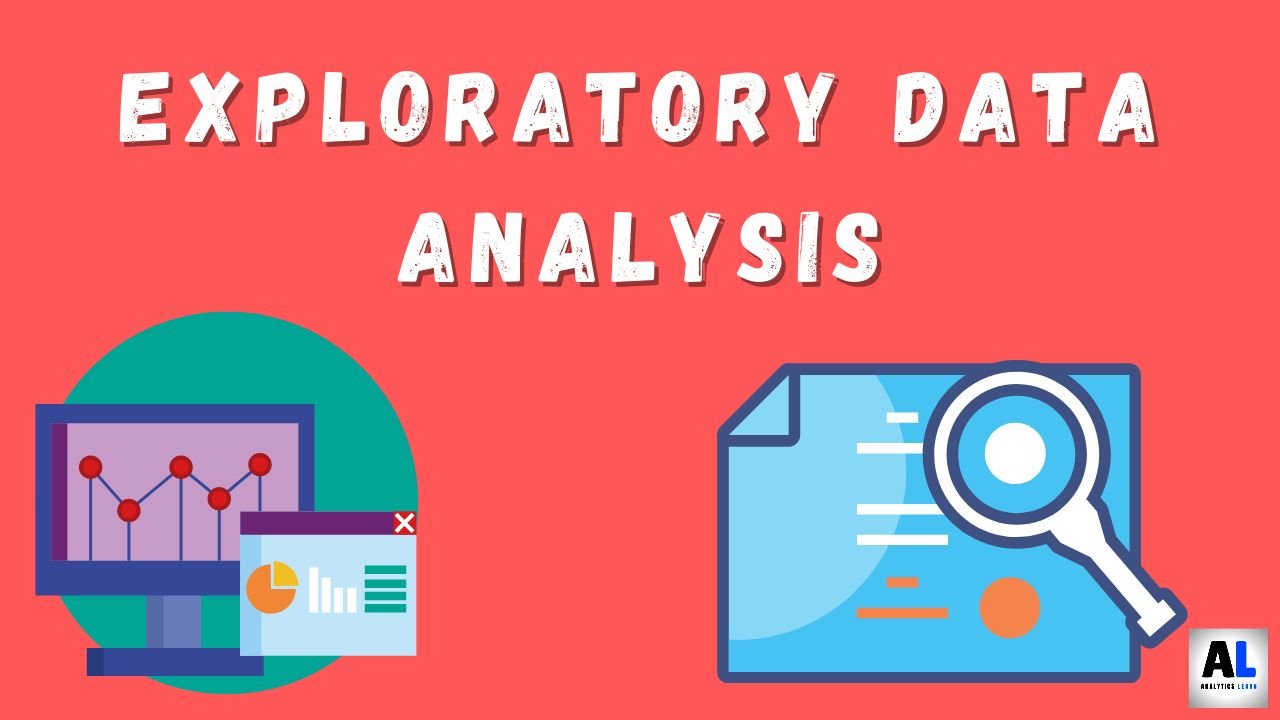In this section, we are going to learn about which is better data science or data analytics? and the usability of each one.
Data analytics and data science are two terms that are often used interchangeably. However, there is a difference between the two and it’s best to start by defining both.
Data analytics and data science are two different fields that are often confused with each other. While the two fields are closely related, there are aspects that separate them from each other.
What is Data Analytics?
Data analytics is a field of study that is used to transform raw data into useful information.
Data analytics companies analyze the past trends in the market to predict future projections.
A data analytics expert is one who can minimize risk, anticipate changes in demand and supply, spend less money on production, and make a profit over the long term while an organization implements a data analytics solution.
Data Analytics is, quite literally, the process of analyzing data. It’s used in a number of different capacities, from quantitative research to business intelligence and online marketing.
What is Data Science?
Putting it all together, data science is the process of using statistical techniques to process data in order to uncover patterns and generate insights about what might happen in the future.
Data science is using data mining, statistical techniques, and predictive analytics to analyze massive data sets and uncover patterns.
Businesses are monitoring their competitors more closely than ever, which means that if you don’t have a lucrative strategy for data analytics and/or data science in place, you currently risk not having the option to stay aware of the latest things.
Why do we Need Data scientists?
Data analytics and data science are both well-established fields that use data to gain insights and make recommendations.
As the popularity of data analytics has grown, so have the opportunities to make use of this career.
Many high-profile companies like Google and Facebook rely heavily on data scientists in order to succeed in their industry.
In today’s complex and technologically-reliant world, data science has become a field of immense value.
What was once a specialized skill possessed by just a few has now morphed into an emergent sub-field of almost every industry.
By learning to dissect increasingly more complex datasets, data scientists are responsible for the creation of vital business-critical insights – and even occasionally in the solution of some of the world’s most pressing problems.
What Does a Data Analyst or Data Scientist do?
Data analytics is an important field that is closely related to the fields of computer science, statistics, and mathematics.
Data analyst use data from a variety of sources in order to gain insights and make recommendations on how to take action.
A data analyst is a professional who extracts meaning from complex datasets and then communicates the findings in a simple form.
This person has a good understanding of statistical analysis, mathematical concepts, and computer programming languages for data management.
A data scientist is someone who is able to look at raw information and identify trends or connections between variables in order to inform business decisions
Importance of Data Science & Analytics for Professionals
Data science and analytics are becoming more common for professionals of all backgrounds.
They are important tools that can be used to help make decisions, drive better results, and improve the process.
The importance is in the use cases. Data science is often considered an opportunity for companies to improve their processes or to gain a competitive advantage by understanding their customers better.
But it’s also important for people who need to make decisions on a day-to-day basis – like managers, doctors, journalists, etc.
Which is Better Data science or data Analytics?
Data analytics is a subset of data science, where the tools used are more focused on processing and analyzing data.
Data analytics is an umbrella term, which includes models that are used for predictive analysis.
Data science involves the use of statistical techniques to process data in order to uncover patterns and generate insights about what might happen in the future.
This technique takes into account different factors such as past data trends, current events, or changes in regulations. It can predict what will happen next by looking at historical records.
Data analytics is often associated with big data so it requires heavy processing power and more time to get accurate results while data science can do all of this faster with more accuracy.
How Data Science is different from data Analytics?
Data Science is more comprehensive, being a broad spectrum that involves numerous aspects of analyzing data.
While Data Analytics focuses on the output, namely how to interpret it, Data Science is more focused on the methodology as well as the collection and analysis of data itself.
Both are important parts of predictive analytics, which aims to uncover patterns in data that can then be used to predict future events.
Key Values of Machine Learning in Business
Machine Learning has been a buzzword for a long time now. It has been around since the 1950s but it is only now that it is being utilized to bring value to businesses.
Companies who want to stay competitive in today’s tech-driven world, need to find a way of incorporating ML into their business processes.
This article will explore the ways in which ML can be used to improve business processes and create new revenue streams for businesses.
1. Content Curation as a Business Strategy Using ML
Content curation as a strategy is gaining traction as it helps marketers make better use of their resources and increase ROI from content marketing activities.
2. Forecasting the Business Sales Using ML
The business and IT industry are rapidly evolving and so are the sales models. The traditional sales model has been replaced by a more flexible and scalable one.
This new approach of enterprise sales relies on data-driven decision-making and the ability to adjust to changes in market trends.
AI and Machine learning can be used as a tool for forecasting business sales as well as provide examples of use cases for AI tools in business forecasting scenarios.
3. Building the Automation in the Workplace
Many countries have a high unemployment rate among workers with low skills. The automation of work with the help of AI will provide those with low skills a new way to earn money.
It will also give those without jobs an opportunity to find work as they can find jobs within their own skillset.
AI in the workplace will be able to do tasks that are repetitive and boring. This will free up human time for more sophisticated tasks, which they may enjoy more and be better at doing.
Conclusion
It’s a no-brainer that data analytics and data science are related fields. Many people think that the two terms are interchangeable, but there are some differences between the two.
Data analytics involves analyzing a business’ raw information to obtain insights about their work or to predict future trends.
Data science also involves analyzing raw information in order to gain insights about a business or process, however, it expands upon data analytics by looking at all of the variables within a dataset.
Recommended Articles:
What’s Google Cloud? – How It Is Different From Others?
Top 10 Benefits of Virtual machine on the cloud
Top AI Project Ideas for Covid-19
How to boost remote working productivity Using AI?

DataScience Team is a group of Data Scientists working as IT professionals who add value to analayticslearn.com as an Author. This team is a group of good technical writers who writes on several types of data science tools and technology to build a more skillful community for learners.










